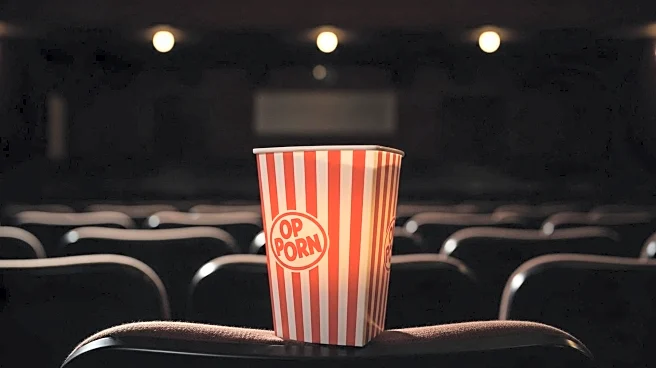What's Happening?
NPR's Scott Detrow, along with producer Marc Rivers and editor Barrie Hardymon, engaged in a discussion about the cultural significance of high school movies. The conversation highlighted films such as 'The Breakfast Club,' 'Clueless,' and 'Superbad,' which have left lasting impressions on audiences. The panelists explored how these movies reflect the high school experience, with Rivers noting a lack of personal identification with some classics like 'Ferris Bueller's Day Off' and 'The Breakfast Club.' The discussion also touched on the portrayal of race and identity in films, with Rivers expressing relief at the absence of Black characters in 'Sixteen Candles' due to its problematic depiction of Asian characters. The conversation further delved into the emotional and social challenges depicted in high school movies, citing 'Carrie' as a film that encapsulates the fears and judgments faced by teenagers.
Why It's Important?
High school movies play a significant role in shaping cultural perceptions of adolescence, often serving as a mirror to societal norms and issues. These films can influence how young people view themselves and their peers, offering both escapism and relatability. The discussion by NPR highlights the importance of diverse representation and authentic storytelling in media, as these elements can impact viewers' understanding of race, identity, and social dynamics. By examining both classic and contemporary films, the conversation underscores the evolving nature of high school narratives and their relevance to current and future generations. The insights provided by Rivers and Hardymon emphasize the need for films that resonate with a broader audience, reflecting varied experiences and backgrounds.
What's Next?
The conversation suggests a continued interest in exploring high school movies that offer fresh perspectives and diverse narratives. As filmmakers and audiences become more aware of the importance of representation, future high school films may increasingly focus on inclusivity and authenticity. This trend could lead to a broader range of stories that resonate with different demographics, potentially influencing societal attitudes towards adolescence and identity. Additionally, the success of recent films like 'Lady Bird' and 'Booksmart' indicates a growing appetite for stories that challenge traditional high school tropes, paving the way for more innovative and meaningful cinematic experiences.
Beyond the Headlines
The discussion also touches on the ethical considerations of how high school experiences are portrayed in media. Films that address sensitive topics such as sexuality, class, and race can shape public discourse and influence young viewers' perceptions of these issues. The conversation highlights the responsibility of filmmakers to approach these subjects with care and nuance, ensuring that their portrayals are both respectful and impactful. As society continues to grapple with complex social dynamics, high school movies have the potential to contribute to broader cultural conversations, offering insights and fostering empathy among audiences.











